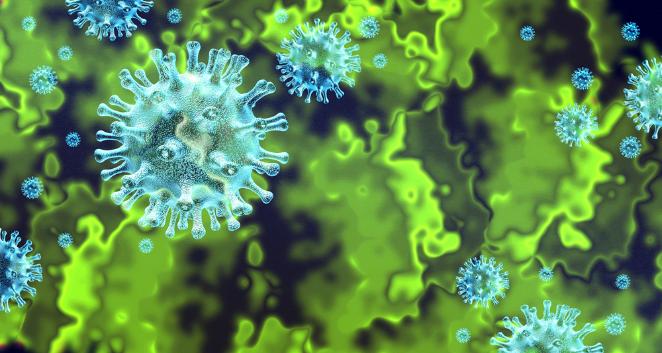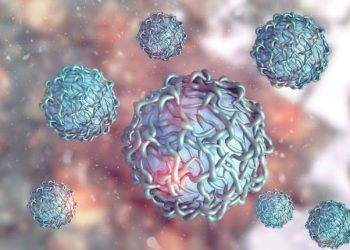Bladder cancer often develops without producing symptoms. This is because the tumour may be small or may have grown into the wall of the bladder.
The most common symptom is blood in the urine, also called hematuria. The blood can be slightly rusty to bright red in color and it may appear on a regular basis or it can disappear and reappear.
Blood in the urine
Blood in the urine, or hematuria, is one of the most common warning signs of bladder cancer. But it can also be a sign of other infections and conditions, like urinary tract infections (UTIs), kidney stones or diabetes. It’s important to talk to your GP about any symptoms that worry you, especially if they’re persistent. It’s better to catch a problem early than wait and let it get worse, or miss the chance of treatment altogether.
Hematuria may not be obvious and can come and go, so it’s important to check your pee regularly. If you do spot blood in your urine, it’s a good idea to see your GP. They’ll ask questions about your health and lifestyle to help determine what the cause is. This could include asking if you’re taking any medication, or eating foods that might change the colour of your urine, like beets and rhubarb.
In some cases, the blood in your urine might be so small that only a lab can see it. This is called microscopic hematuria and it’s more likely to be a sign of bladder cancer than gross hematuria, which is blood that you can see in your urine.
If your GP thinks you might have bladder cancer, they’ll carry out a number of tests to rule it out or find out how far the cancer has progressed. These might include a urinalysis and cystoscopy, or they might do a blood test to check for cancer cells. They might also refer you to a specialist, for example, a urologist or oncologist. If the cancer has spread to other parts of your body, you might have symptoms that are specific to those areas, like if it’s in your lungs, you might have coughing and shortness of breath.
Frequent urination
If you’re going to the bathroom more than usual, it could be a sign of bladder cancer. Frequent urination is one of the first symptoms of the disease, and it can happen to people of all genders and ages. This symptom can also be caused by other health conditions, such as urinary tract infections or kidney stones.
Bladder cancer cells can irritate the bladder and make you need to pee more often than normal. This can also cause you to have pain when you’re urinating. This pain is called dysuria. It can feel like burning or stinging in your lower urinary tract.
In some cases, blood can be seen in the urine (hematuria). This is a warning sign for both non-muscle invasive and muscle invasive bladder cancer. The cancer may be in the inner layer of your bladder or deeper in the wall of the bladder. The cancer can spread to other parts of the body, which is why it’s important to see a doctor right away if you have this symptom.
The doctor will ask you about your symptoms and examine you. They will also take a sample of your urine to test for blood. The sample will be tested for cancer cells and other health conditions.
The doctor will also perform a procedure called a cystoscopy. During this test, the doctor inserts a thin tube into your bladder through the urethra. They will then use a camera to look for signs of bladder cancer. If they find any, they will take a biopsy of the area and run more tests to confirm the diagnosis. This will help them decide what treatment options you should have.
Pain while urinating
Pain when urinating (dysuria) is not usually an early symptom of bladder cancer. It may not show up until the cancer is more advanced, or it could be caused by other conditions, like a urinary tract infection, kidney stones or a condition called urethral stricture, in which scar tissue forms around the urethra, the tube that carries urine out of the body.
If you’re experiencing pain while urinating, your doctor will ask how long the symptoms have been happening and what makes them worse or better. Then, they’ll order a few tests to figure out what is causing them. These include a urinalysis, a CT scan or an MRI and a cystoscopy, in which the urologist places a small camera in your bladder through the urethra to check for abnormalities.
Some medicines can irritate the bladder and cause it to hurt when you pee. This is especially true if you’re taking a new medication, and it’s important to talk to your doctor if this is a problem for you.
The most common symptom of bladder cancer is blood in the urine, which is called haematuria. You can sometimes see this in your urine, but most often it is microscopic and only a healthcare provider can spot it during a urinalysis. Other signs of bladder cancer include trouble passing urine, pain in the lower belly or groin, and weight loss. Bladder cancer can also spread to the lungs and bones, which may cause other health problems. If that happens, you’ll need further tests to find out how far the cancer has spread and its prognosis. Then, your healthcare providers will use that information to stage the cancer, or plan treatment.
Loss of bladder control
Sometimes bladder cancer can spread to other parts of the body, such as the lungs or bones. When this happens, it may cause different symptoms and signs.
Bladder cancer starts in the cells that line your bladder. These are called urothelial cells. They also line the ureters, which carry urine from your kidneys to your bladder. Most often, urothelial cells become cancerous and grow out of control. This creates a mass of cancer cells that can spread to other tissues or to the lymph nodes in your pelvic area.
The most common symptom of bladder cancer is blood in your urine. This is true for both men and women. It may look orange, pink or darker red. You might be able to see the blood in your pee, or it might only show up on a lab test. You may also have pain when you pee.
If you think you have a symptom of bladder cancer, talk to your healthcare provider. The provider will ask you questions and do a physical exam. The provider will also do a lab test to check for cancer in your urine. You may also have other tests to see if the cancer has spread.
Most people with bladder cancer are older than 65. More men than women get it. It can happen to anyone, but it’s more likely if you have certain health problems or risk factors. These include a history of smoking or exposure to chemicals at work. It’s also more common in people who are white. Bladder cancer is less common in black people and in young people.
Weight loss
Bladder cancer usually starts in the cells lining your bladder, a hollow organ that stores urine before it leaves your body. Over time, these cells can grow and form a tumor, which may then spread to surrounding tissue. This can cause your symptoms to change.
The most common early symptom of bladder cancer is blood in the urine (hematuria). This may be visible or it may not be, and it may come and go. Blood in your urine can also be a sign of other conditions, such as an infection or kidney stones, so it’s important to see your doctor right away.
In some cases, your doctor will be able to diagnose bladder cancer by looking at your symptoms and doing a simple test. A sample of your urine is sent off for a special test that can check for cancer cells and other problems. This test is called a urinalysis and can help your doctor figure out what’s causing your symptoms.
Some types of cancer, such as transitional cell carcinoma, start in the inner lining of your bladder. These cancers spread to other layers of the bladder wall or into fatty tissues that surround your bladder. These cancers usually grow more quickly than other types of bladder cancer.
If the bladder cancer has already spread to other parts of your body, the new symptoms depend on where it’s gone. For example, cancer that has spread to your lungs can cause a cough or shortness of breath. Cancer that has spread to your liver can cause abdominal pain or jaundice (yellowing of the skin and whites of the eyes).
While it’s possible for your cancer to return after treatment, seven out of 10 people with bladder cancer are cured when it is found at an early stage. If you have had bladder cancer, tell your doctor if you have any new symptoms like blood in your urine or the sudden need to urinate.









